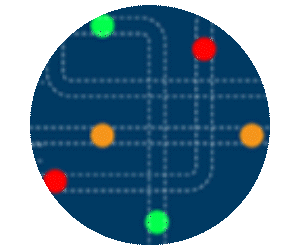1. Nearly All New Federal Government Contracts Include Generative AI
Whether it’s used for application development, the enhancement of existing systems or to provision new services, generative AI will help government to leverage the vast amounts of data it collects to create value in unprecedented ways. We’ll see it adopted with exponential speed around the globe. State and local governments will follow the federal government to incorporate generative AI into contracts.
2. Government Employees Will Train to Maximize Generative AI ROI
Generative AI requires human oversight to ensure that it is used ethically and effectively; it’s not a magic bullet that can solve all problems. I expect the implementation of more training programs, tailored to the needs of respective departments or employees, to help them understand how to get the most value from the new technology. Topics could include how to define problems for generative AI, how to select and use appropriate tools, and how to communicate and implement solutions.
EXPLORE: Data governance strategies for AI success.
3. Governments Navigate Potential Shortages with Generative AI
Leaders in the private sector often note that one of the major benefits of generative AI is its ability to help organizations do more with less. This is similarly applicable to the public sector, which will follow the private sector’s lead in doing more with generative AI. Generative AI help optimize resources, reduce costs, increase productivity and improve quality. For example, generative AI can generate realistic simulations for training, testing and planning purposes, reducing the need for costly physical infrastructure and equipment.
4. Tech Companies Will Collaborate to Develop Regulations
Tech companies will exit the generative AI arms race of 2023. Cooperation and coordination are critical to ensuring the long-term viability of generative AI. I anticipate that tech companies will engage with government, academia, civil society and other stakeholders to develop standards that promote trust, transparency and safety regarding generative AI.
WATCH NOW: State CIOs discuss how they are planning for GenAI.
5. Generative AI Will Streamline Government Procurement
Historically, procurement is one of the most complex and challenging processes for government, involving multiple steps, stakeholders and requirements, coupled with myriad legal and regulatory constraints. Government procurement traditionally has been quite time-consuming. Generative AI can help government simplify and automate procurement by providing intelligent recommendations and facilitating negotiations, contracts and payments — in the end, cutting down on costly review time. This will inevitably kick off a national tech transformation, impacting the ways government purchases and acquires services.
6. Generative AI Will Transfer More Citizen Services to Digital Platforms
There will be greater bipartisan buy-in to take citizen services paperless, transferring written intake documents to digital means and eliminating the need to share duplicative information. Citizen services are the core function and beating heart of government, and performing them expediently is inextricably linked to satisfaction and trust. That said, citizen services are often impeded by cumbersome processes, including paper-based, manual and siloed workflows. Digital services, enabled by generative AI, will improve the speed and accessibility of citizen services and reduce errors, costs and waste. Governments will start to offer anticipatory services leveraging citizen data to support the most vulnerable populations, such as veterans, homeless individuals and displaced populations.
There’s no doubt that seismic change is daunting for the public sector. Still, it is crucial for government stakeholders to seize opportunities presented by generative AI. A new chapter of efficient, innovative government is upon us.











